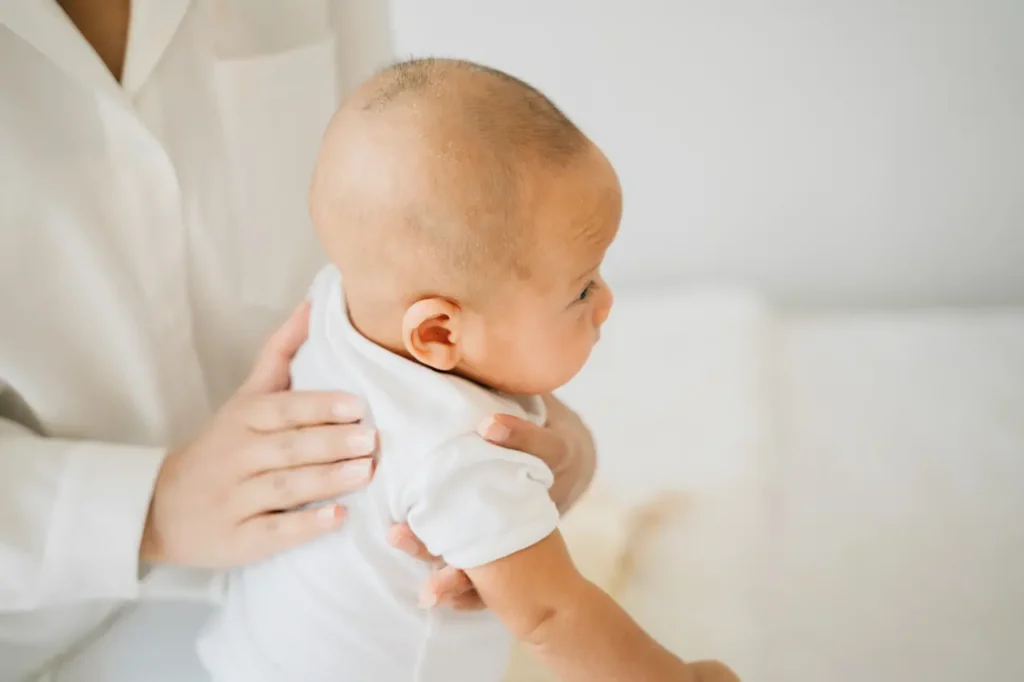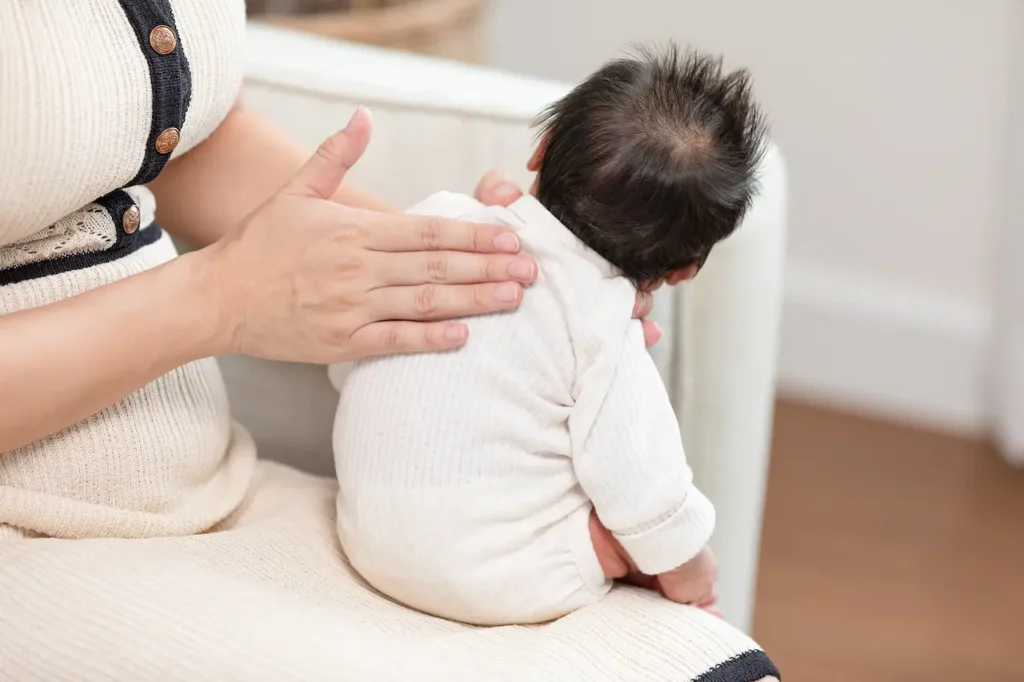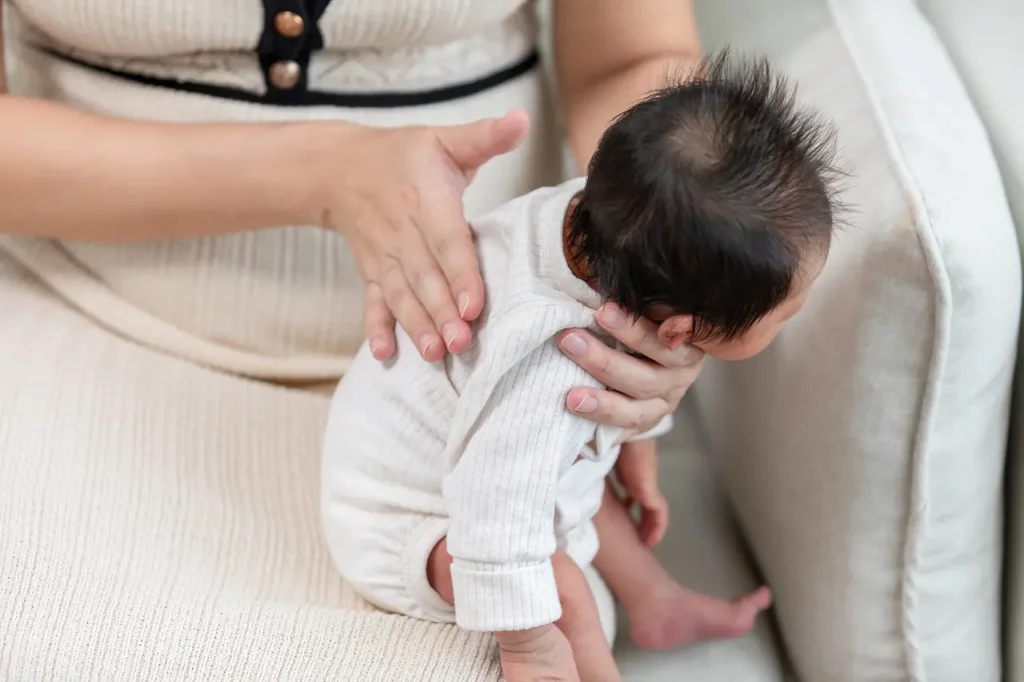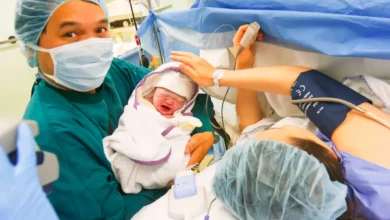Why Do Babies Hiccup So Much?
The Surprising Truth About Baby Hiccups and How to Handle Them
While baby hiccups can sometimes be puzzling, they serve a significant purpose in your baby’s development. Research has shown that baby hiccups are not just a random or meaningless phenomenon but are an important part of how babies learn to regulate their bodily functions–especially their breathing. Hiccups are essentially a form of practice for the baby’s diaphragm, breathing muscles, and brain. The good news is, while they may seem frequent and even adorable, hiccups are typically harmless and don’t require medical attention in most cases.
In this article, we’ll dive deep into the science behind baby hiccups, why they happen so often, how to soothe them, and when to worry. By the end of this article, you’ll understand exactly why those tiny “hic” sounds from your little one are a normal–and important–part of their development.

What Are Baby Hiccups?
Before delving into the causes and significance of baby hiccups, let’s take a moment to understand exactly what happens when a baby gets the hiccups. A hiccup occurs when the diaphragm–the muscle located beneath the lungs–contracts involuntarily. This contraction causes a sudden intake of air into the lungs. However, before the air can fully enter, the vocal cords rapidly close, causing the characteristic “hic” sound.
While hiccups are generally harmless in adults, they can seem confusing or worrying in babies. Babies have hiccups frequently in the first few months of life, but these involuntary diaphragm spasms are usually nothing to worry about. Hiccups in newborns may serve an essential role in their development. They are a sign that their body is adjusting to life outside the womb and learning how to manage important functions such as breathing.
The Science Behind Baby Hiccups: What Research Shows
At first glance, it may seem like hiccups are just a random reflex or an annoyance, but new research suggests that they are more purposeful than we think. According to a study by researchers from University College London (UCL), baby hiccups play a crucial role in brain development. The research, published in the journal Clinical Neurophysiology, found that the process of hiccupping triggers brain signals that may help babies learn to regulate their breathing.
Dr Lorenzo Fabrizi, one of the senior authors of the study, explained, “When we are born, the circuits which process body sensations are not fully developed, so the establishment of such networks is a crucial developmental milestone for newborns.” In other words, babies’ bodies and brains are still “learning” how to work together. The act of hiccupping helps their brain learn how to control important functions, such as the diaphragm’s movement, which is essential for proper breathing.
Hiccups in babies are not just a reflex but a developmental tool. The study found that when babies hiccup, their diaphragm contracts, sending signals to the brain. These signals are followed by what researchers describe as “two large brainwaves, followed by a third.” Interestingly, the third brainwave closely resembles the one a baby produces when they hear a sound. Researchers believe that this combination of the diaphragm’s movement and the brain’s response is essential for helping the baby’s brain form connections that will ultimately help them control breathing later on in life.
It is also thought that adult hiccups may be a leftover reflex from when we were infants. In babies, hiccups serve as an important developmental function, but by the time we reach adulthood, we no longer need this practice. Nonetheless, some adults continue to experience hiccups, possibly because this reflex persists even after we’ve gained voluntary control over our diaphragm and breathing.
What Causes Hiccups in Babies?
Now that we understand the role hiccups play in babies’ development, let’s take a closer look at the potential causes of baby hiccups. Several factors can trigger hiccups in newborns. Some of these causes are related to feeding, while others are simply a normal part of the baby’s development.
- Overfeeding or Eating Too Quickly: One of the most common causes of hiccups in babies is overfeeding or eating too fast. When a baby consumes more milk than their small stomach can handle, the stomach presses against the diaphragm. This can trigger the diaphragm to contract involuntarily, causing a hiccup. If the baby is drinking too quickly, they may also be taking in excess air, which can lead to hiccups as well.
- Swallowing Air During Feeding: Babies often swallow air while breastfeeding or bottle-feeding, especially if they are not latched on properly. When air gets trapped in their stomach, it can irritate the diaphragm, leading to hiccups. The type of bottle used for bottle-feeding can also play a role–if the nipple allows milk to flow too quickly or slowly, it can cause the baby to suck in air, increasing the chances of hiccups.
- Gastroesophageal Reflux (GERD): Gastroesophageal reflux (GERD) is another common cause of hiccups in babies. GERD occurs when stomach contents flow back into the esophagus, which can irritate the diaphragm and trigger hiccups. Babies with reflux may also experience spitting up or discomfort during feedings, and their hiccups may be more frequent as a result.
- Stimulation of the Diaphragm: Babies have sensitive diaphragms that are still developing, and the act of eating, stretching, or moving around can trigger spasms. The diaphragm may also be stimulated by other factors, such as excitement or the change in position during feedings, which can lead to hiccups.
- Excitement or Physical Activity: Hiccups can also be triggered by a burst of excitement or physical activity. If a baby is overstimulated or engaged in active play, it might cause the diaphragm to contract and trigger hiccups. These episodes are usually temporary and resolve on their own.

Why Do Babies Hiccup So Frequently?
If you’ve noticed your baby hiccupping frequently, you might be wondering why this reflex seems to happen so often in newborns. The answer lies in the rapid development that takes place in your baby’s body during the first few months of life. Hiccups are essentially a way for babies to “practice” controlling the diaphragm and their breathing muscles.
At birth, babies are still learning how to use their bodies in coordination with their brains. Their systems are immature, and they need to practice moving their muscles in a controlled way. Hiccups are a tool to help babies build neural connections in their brains that allow them to gain control over breathing. Because the baby’s brain is still making these connections, they may hiccup frequently during their first few months as part of this learning process.
As babies grow older, they gain better control over their diaphragm, breathing, and other bodily functions. Therefore, hiccups become less frequent as they become more adept at regulating their body’s movements.
How to Soothe Your Baby’s Hiccups
Although hiccups are completely normal and usually harmless, they can be bothersome for both parents and babies. Fortunately, there are several things you can do to soothe your baby’s hiccups and help them feel more comfortable.
- Burp Your Baby: One of the most effective ways to stop your baby’s hiccups is to burp them. Whether you’re breastfeeding or bottle-feeding, burping helps release the trapped air that may be causing the hiccups. If you’re breastfeeding, try burping your baby when switching sides. If you’re bottle-feeding, burp your baby halfway through the feeding. You can also burp your baby at the end of the feeding session.
- Take a Break During Feeding: If your baby gets hiccups while feeding, try giving them a short break. Allow your baby to relax and digest for a few minutes before continuing with the feeding. This gives the stomach time to settle and can help prevent further hiccups.
- Keep Your Baby Upright: Holding your baby in an upright position during and after feedings can help reduce the chances of hiccups. Keeping your baby upright helps the milk flow more smoothly and reduces pressure on the diaphragm. After feeding, hold your baby upright for about 15-20 minutes to give their stomach time to settle and digest.
- Offer a Pacifier: Some babies find comfort in sucking on a pacifier. This sucking motion can help relax the diaphragm and stop the hiccups.
How to Prevent Baby Hiccups
While hiccups are often inevitable, there are a few strategies you can implement to reduce their frequency. Here are some tips to help minimize the chances of hiccups in your baby:
- Proper Latch During Breastfeeding: Make sure your baby is latched on properly during breastfeeding. A poor latch can cause your baby to swallow air, which can lead to hiccups. If you’re having trouble with latch issues, seek assistance from a lactation consultant.
- Use an Anti-Colic Bottle: If you’re bottle-feeding, consider using a bottle designed to reduce air intake. These bottles typically feature special vents or valves that minimize the amount of air your baby swallows while feeding.
- Avoid Overfeeding: Be mindful of your baby’s hunger cues to prevent overfeeding. Overfeeding can stretch the stomach and put pressure on the diaphragm, triggering hiccups.
- Positioning After Feeding: After feeding, hold your baby upright for 15-20 minutes to help them digest. This helps prevent any reflux or pressure on the diaphragm that could lead to hiccups.

When to Call the Doctor
While hiccups are generally harmless, there are some cases when you may want to consult your pediatrician. If your baby experiences persistent hiccups, or if the hiccups are accompanied by other signs of distress, such as fussiness, arching their back during or after feeding, spitting up frequently, or showing signs of discomfort, it’s a good idea to seek medical advice.
Additionally, if the hiccups seem to last longer than 10 minutes or occur very frequently, it’s best to talk to your doctor to rule out any potential underlying conditions, such as reflux or digestive issues.
Conclusion
Hiccups are a completely normal and common occurrence in babies, and they typically serve an important developmental function. While they can seem frequent or even annoying, they are part of your baby’s growth and development process. Hiccups help your baby’s brain and diaphragm coordinate, ultimately allowing them to learn how to regulate their breathing.
While hiccups are generally harmless, you can help alleviate them by burping your baby, taking breaks during feedings, and using proper feeding techniques. If you’re concerned about persistent or uncomfortable hiccups, don’t hesitate to reach out to your pediatrician for guidance.
In the meantime, remember that hiccups are just another quirky part of parenthood–one that will eventually fade as your baby grows and gains better control over their body. So, next time your baby hiccups, rest assured that it’s all part of the process of becoming a big, healthy baby.



